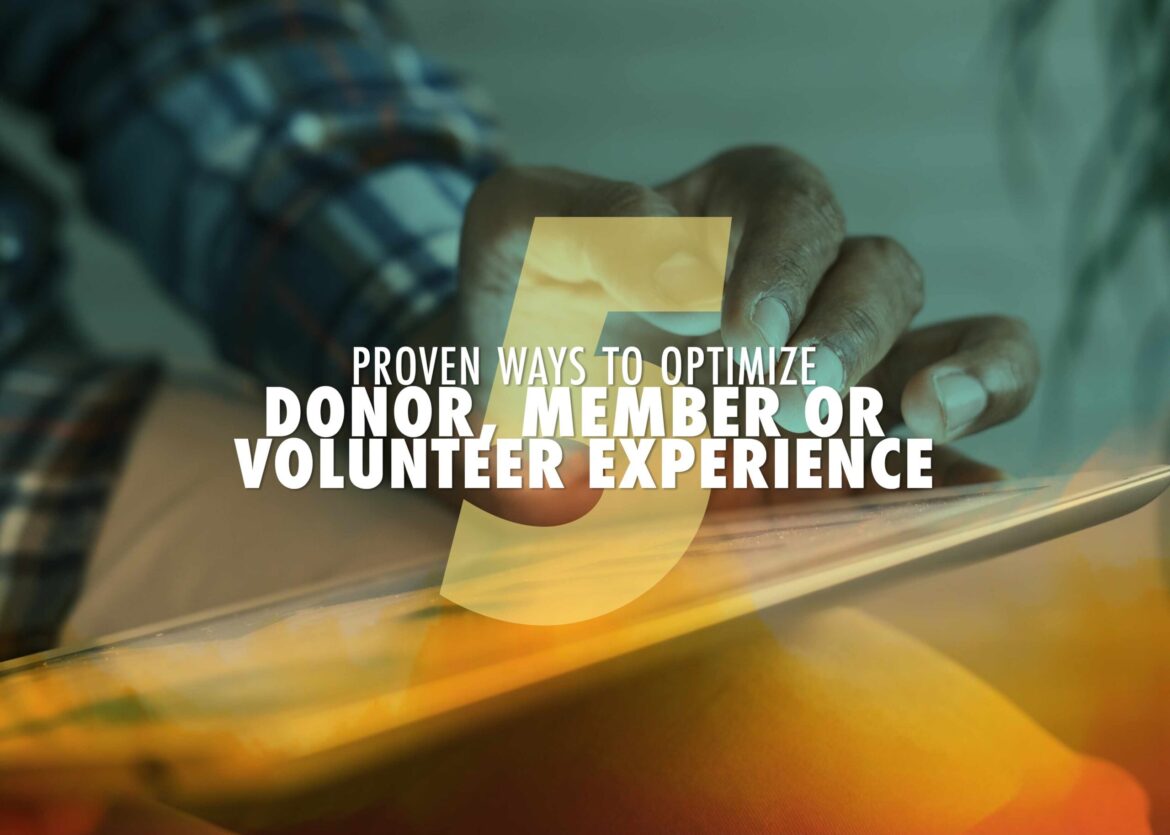In today’s society, there is an increasing need for positive change. Nonprofit organizations have a vital role to play in bringing about this change. However, what distinguishes successful nonprofits from the rest? It is their skill in establishing robust and meaningful connections with their donors. Creating these relationships goes beyond mere financial support. It involves fostering trust, embracing shared values, and forging genuine bonds. To accomplish this, nonprofits must prioritize donor engagement and make it a core aspect of their operations.
Personalize Outreach and Make a Lasting Impact.
Personalized outreach is extremely important for nonprofits because it establishes trust, nurtures connections, and attracts more support for their cause. By understanding what motivates donors, their preferences, and their values, nonprofits can craft personalized messages that truly resonate with them.
Addressing donors by name, acknowledging their past contributions, and highlighting the impact of their support makes them feel valued and appreciated. This not only strengthens the bond between the nonprofit and the donor, but also encourages ongoing involvement and assistance.
Moreover, personalized outreach allows nonprofits to effectively communicate the tangible impact of their work by sharing stories and testimonials that align with each donor’s interests and values. This approach helps to increase donor engagement and expand the donor base. By tailoring messages to different demographics, nonprofits can engage with individuals who may have previously been unaware or uninterested in their cause.
This targeted approach captures the attention of potential supporters who are more likely to connect with the mission. In conclusion, personalized outreach is crucial for nonprofits to effectively engage, establish strong relationships, and garner support for their mission.
It creates a meaningful and impactful experience that resonates with donors on a personal level, while also helping nonprofits to stand out in the philanthropic landscape.
Engage in Constant Communication
It is often overlooked by many organizations how important it is to keep in touch with their donors on a regular basis. This lack of engagement can lead to a decrease in support and hinder the growth of your cause.
According to a study conducted by Abila, it was discovered that more than half of all donors want to receive communication from organizations at least once a month. In fact, millennials, who make up the largest group of donors, prefer to receive content at least twice a month.
To ensure that you are constantly communicating with your donors, it is crucial to set reminders to follow up with both current and potential donors at regular intervals. This will help you stay connected and keep them informed about the impact of their contributions.
When reaching out to your donors, remember to personalize your messages and make them feel valued. Share updates on the progress of your organization, success stories, and upcoming events. This will not only keep them engaged but also create a sense of belonging to your cause.
Additionally, expressing gratitude is crucial in donor communication. Take the time to thank your donors for their support and let them know how their contributions have made a difference. This simple act of appreciation can go a long way in building strong and lasting relationships.
Don’t limit your communication to just emails or letters.
Embrace different communication channels, such as social media platforms, to reach a wider audience. Engage with your donors by sharing captivating stories, hosting live Q&A sessions, or even organizing virtual events. Remember, constant communication is the key to maintaining a strong connection with your donors. By keeping them informed, engaged, and appreciated, you can build a loyal community of supporters who will continue to champion your cause.
Recognize Donors For Their Contributions
Did you know that a significant number of donors are not properly thanked for their contributions? In fact, 21% of donors never receive any acknowledgment at all. And for the remaining 79% who do receive thanks, it’s often a generic and insincere gesture.
Failing to express genuine gratitude for donors’ contributions can have serious consequences. It not only damages relationships but also discourages donors from making future donations.
According to the Association of Fundraising Professionals, donor retention rates have consistently been low, averaging below 50%.
However, there is some good news. Acknowledging donors is the key to improving donor retention rates and increasing the overall value of your donor database. In fact, a mere 10% increase in donor retention can lead to a 200% increase in the lifetime value of your donors.
So let’s make a difference together. Let’s take the time to acknowledge our donors for their contributions and show them just how much we appreciate their support. By doing so, we can create a lasting impact in the world of philanthropy.
Solicit Referrals From Existing Donors
Asking your current donors for referrals is a great way to expand your donor base and increase your nonprofit’s reach. When someone introduces your organization to a friend, it not only helps your message stand out but also catches the attention of potential donors. It gives your organization credibility.
So, how can you effectively ask for referrals from your existing donors? One way is to identify your most engaged and passionate donors. These are the people who are most likely to refer your organization to others.
Reach out to them personally and thank them for their support. Let them know how much their referrals would mean to your organization. Provide them with the tools and resources they need to make referrals, such as brochures, social media graphics, or personalized referral links.
Stay in touch with your donors regularly and offer any assistance they may need in making referrals.
Remember, building relationships with your donors is important. By nurturing these relationships and asking for referrals, you can tap into their networks and gain new supporters.
Engage Your Board Members
Often, nonprofit organizations dedicate much effort to achieve their objectives but tend to overlook a crucial resource in their midst – their board members.
These influential individuals, who have a history of success in the corporate realm, possess the potential to establish connections with potential donors who can provide invaluable support.
According to research conducted by the Nonprofit Research Collaborative, organizations stand a greater chance of attaining their goals when they actively engage their board members in reaching out to potential donors. By leveraging their personal networks, board members can tap into a pool of individuals who may have an interest in contributing to the cause.








